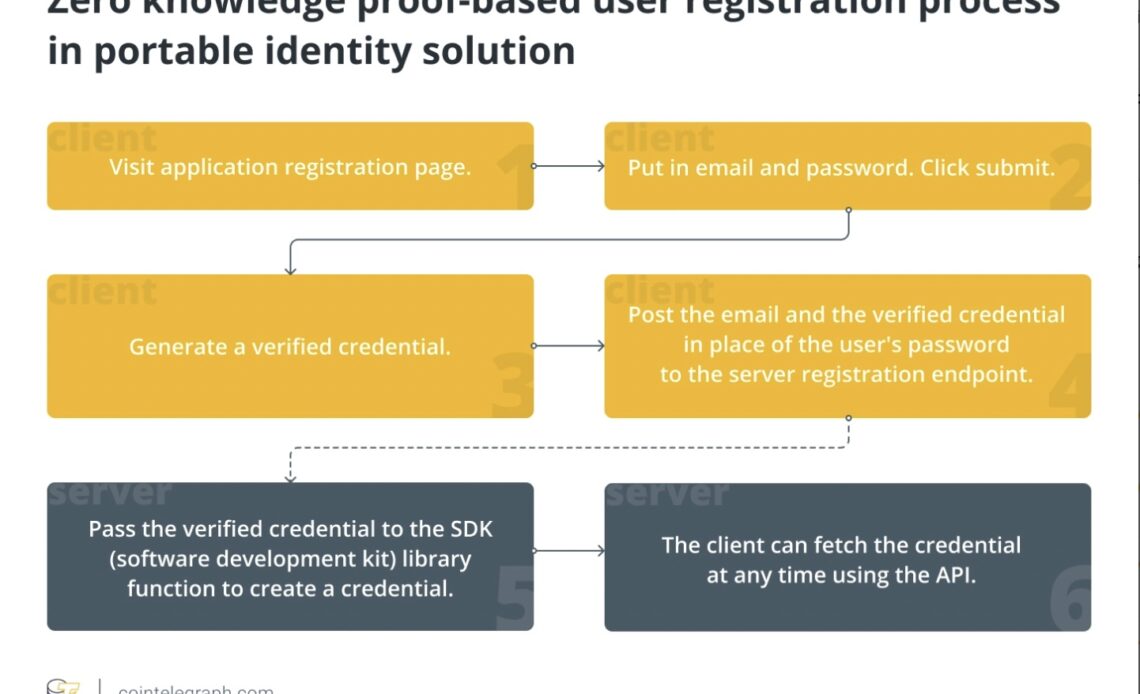[the_ad id="1637"]
[ad_1]
The emergence of blockchain technology presents an opportunity to reexamine and innovate solutions used in our day-to-day life. Blockchains and, broadly speaking, the digital space fuelled by an artificial intelligence revolution urgently need to establish verifiable human identities to ensure trust, accountability and regulatory compliance.
There are a variety of emerging technologies, both on- and off-chain, that could serve as the basis for a functioning trust framework. One solution, in particular, is often referred to as the holy grail of verifications — zero-knowledge Know Your Customer (zkKYC) verification.
What are zk and KYC?
ZK stands for zero-knowledge, a cryptography term used to create cryptographic proofs without revealing the underlying confidential information. Z-based solutions are pioneering privacy across the web. The blockchain industry fueled the innovation of ZK technologies due to their minimal transaction size and privacy-preserving nature.
Related: Kraken staking ban is another nail in crypto’s coffin — And that’s a good thing
Know Your Customer, or KYC, is a set of processes and procedures businesses use to verify their customers’ identities. It is also used in the financial sector to assess any potential risks for money laundering or terrorism financing. It is a requirement for businesses to diligently understand their customers before establishing a relationship with them.
Why zkKYC proofs will not work for blockchains
Zero-knowledge proofs, when created, are linked to a wallet address through a signature. These proofs are not publicly discoverable by design. Yet when a blockchain address interacts with a public smart contract that requires such a proof, the proof’s existence becomes public, negating the privacy benefits of a zero-knowledge proof. It is due to the design of smart contracts running on public blockchains that create a publicly discoverable list of all interacting wallets.
A wallet with zero-knowledge proof that does not interact with an on-chain service that requires such a proof avoids the public disclosure of the proof. Yet this wallet can only transact with another proof-holding wallet following a precursor interaction or the involvement of an intermediary. The hidden nature of these proofs requires both wallets to reveal their proofs to one another proactively.
Another issue with zero-knowledge credentials that are prone to change status over time (such as a Know Your Customer good standing) arises…
Click Here to Read the Full Original Article at Cointelegraph.com News…
[ad_2]
[the_ad id="1638"]
